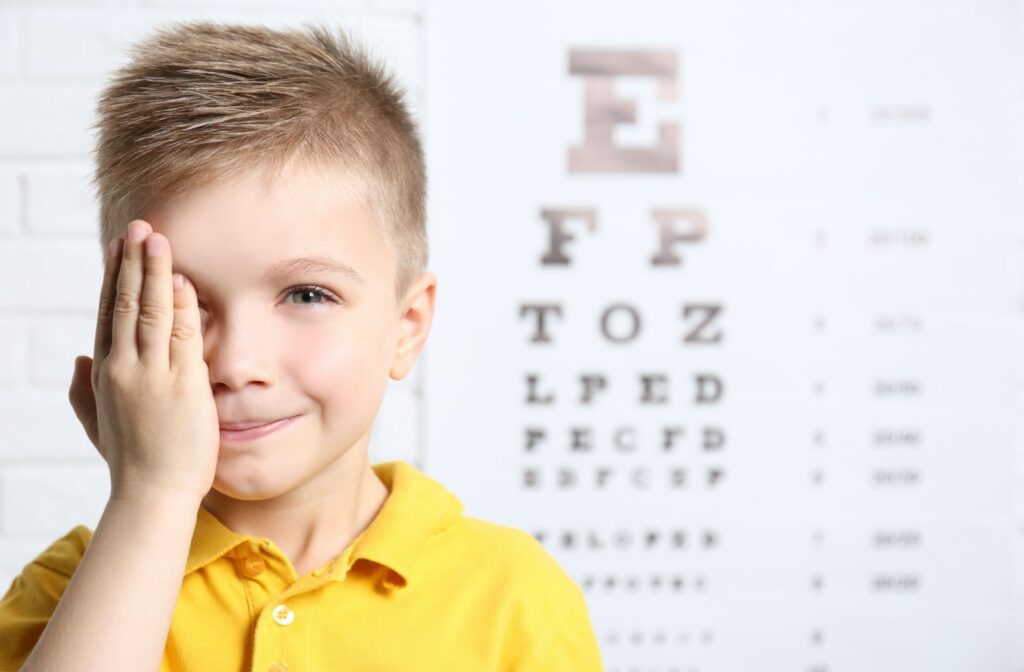All Categories
Featured
Table of Contents
Eye health is a vital part of total wellness, and regular eye examinations play an essential function in preserving excellent vision throughout life. Each age has details demands and dangers connected to eye health, making it important to follow tailored recommendations for eye exams. Right here's a thorough introduction of how frequently eye examinations should be arranged for different age teams.
After the initial examination, kids must have a 2nd eye assessment around age three, when they can better get involved in screening and evaluation. If no vision troubles are identified, the following test is suggested before beginning institution, typically around age 5. Early discovery of problems can cause timely treatment and assistance healthy aesthetic advancement.
Parents ought to try to find signs of vision troubles, such as problem reading the blackboard, squinting, or whining of frustrations. If any of these signs and symptoms occur, it is very important to set up an eye examination without delay. Kids that get involved in sports may benefit from annual eye tests to ensure ideal visual performance and safety during activities.
![]()
Young adults frequently experience digital eye strain because of comprehensive screen time, bring about signs and symptoms like dry skin and discomfort. If you discover these symptoms, looking for an eye exam is crucial. An eye care expert can supply options, such as computer glasses or way of life modifications, to reduce strain.
For individuals with wellness problems like diabetes mellitus or high blood stress, even more constant examinations may be required. Regular surveillance is essential for early detection and monitoring of prospective issues that can impact vision.
Senior citizens might also experience modifications in their aesthetic perception, such as difficulty seeing in reduced light or identifying shades. Routine eye exams enable prompt intervention and help maintain independence and top quality of life.
Infants (0-2 Years)
Babies go through substantial visual growth in their early years, making early eye evaluations crucial. The American Academy of Pediatrics advises that infants have their very first eye exam at about six months old. This initial visit aids recognize any potential vision problems, such as strabismus (gone across eyes) or hereditary cataracts, which can influence development if not resolved early.After the initial examination, kids must have a 2nd eye assessment around age three, when they can better get involved in screening and evaluation. If no vision troubles are identified, the following test is suggested before beginning institution, typically around age 5. Early discovery of problems can cause timely treatment and assistance healthy aesthetic advancement.
Kids (3-18 Years)
For school-aged kids, normal eye exams are vital for both scholastic success and general well-being. Kids should have their eyes checked each to two years, relying on their specific needs. Institutions commonly perform vision testings, yet these do not change detailed eye exams by an eye care specialist.Parents ought to try to find signs of vision troubles, such as problem reading the blackboard, squinting, or whining of frustrations. If any of these signs and symptoms occur, it is very important to set up an eye examination without delay. Kids that get involved in sports may benefit from annual eye tests to ensure ideal visual performance and safety during activities.
Young Person (19-39 Years)
During young their adult years, many people delight in relatively secure vision, however that does not imply eye treatment can be overlooked. Young person need to schedule comprehensive eye examinations every two years. Those that put on call lenses or have a family members background of eye disease need to consider yearly examinations.
Young adults frequently experience digital eye strain because of comprehensive screen time, bring about signs and symptoms like dry skin and discomfort. If you discover these symptoms, looking for an eye exam is crucial. An eye care expert can supply options, such as computer glasses or way of life modifications, to reduce strain.
Adults (40-64 Years)
As people enter their 40s, changes in vision can become more noticeable, specifically presbyopia, a problem that makes it challenging to concentrate on close items. Grownups in this age must set up eye tests every one to two years. This is additionally the age when numerous eye conditions, such as glaucoma and diabetic retinopathy, can start to establish.For individuals with wellness problems like diabetes mellitus or high blood stress, even more constant examinations may be required. Regular surveillance is essential for early detection and monitoring of prospective issues that can impact vision.
Elders (65 Years and Older)
Seniors go to a boosted threat for numerous eye illness, including cataracts, age-related macular deterioration, and glaucoma. It's advised that people aged 65 and older have an eye test a minimum of as soon as a year. Early discovery of these conditions is vital, as lots of can be dealt with effectively if caught early.Senior citizens might also experience modifications in their aesthetic perception, such as difficulty seeing in reduced light or identifying shades. Routine eye exams enable prompt intervention and help maintain independence and top quality of life.
Final thought.
Focusing on eye care and routine check-ups makes sure that individuals can delight in clear vision and a better top quality of life, making eye health an important aspect of lifelong wellness. Routine consultations with an eye care professional will lead the method for much healthier eyes and a brighter future.Table of Contents
Latest Posts
Host Your Perfect Occasion: Venue Rental Options for Every Celebration
Published en
1 min read
Picking the Right Place: What to Consider for Wedding Celebrations, Seminars, and Occasions
Published en
1 min read
Host Your Perfect Occasion: Venue Rental Choices for Every Event
Published en
1 min read
More
Latest Posts
Host Your Perfect Occasion: Venue Rental Options for Every Celebration
Published Mar 28, 25
1 min read
Picking the Right Place: What to Consider for Wedding Celebrations, Seminars, and Occasions
Published Mar 25, 25
1 min read
Host Your Perfect Occasion: Venue Rental Choices for Every Event
Published Mar 04, 25
1 min read